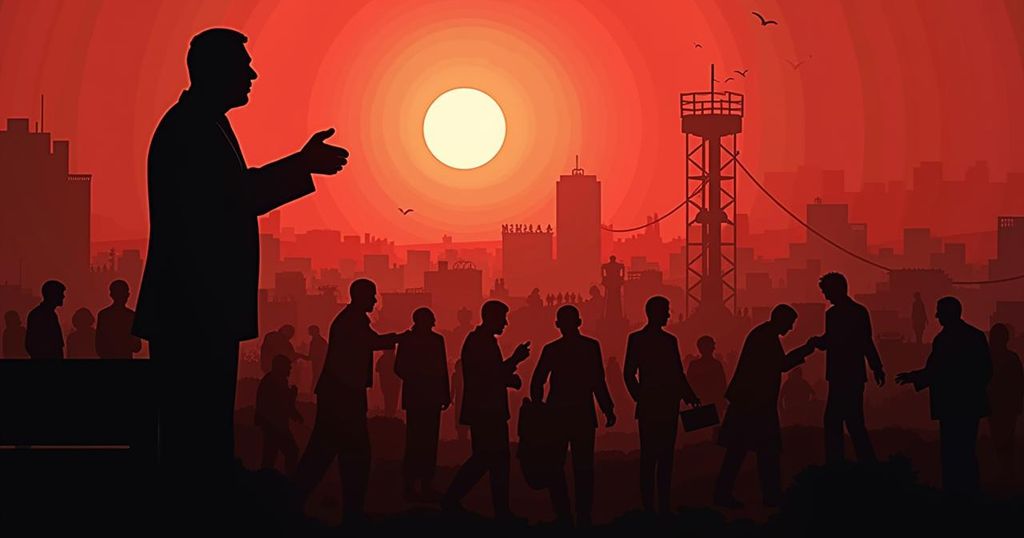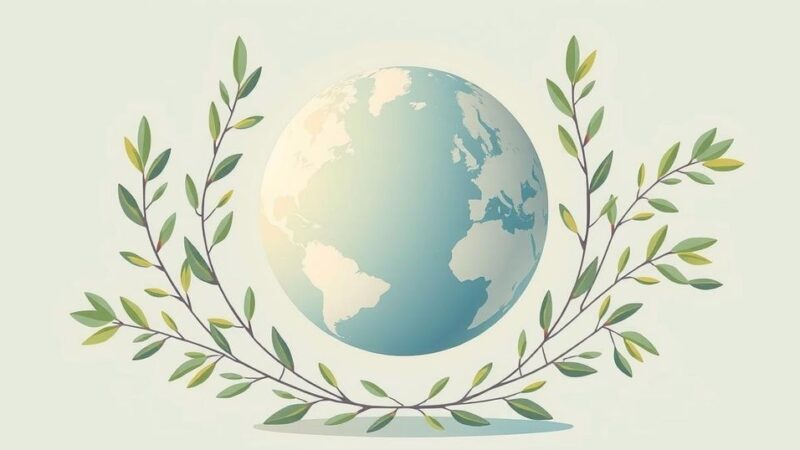Tunisia holds a presidential election on Sunday with incumbent Kais Saied expected to win against minimal opposition. Saied’s critics face imprisonment, and numerous candidates have been barred from running, diminishing democratic practices. Voter sentiment is marked by disillusionment due to ongoing economic hardship and concerns over authoritarianism, making participation appear futile to many.
Tunisia is poised to conduct a presidential election on Sunday, amidst a climate of political repression and a significant lack of viable opposition. Incumbent President Kais Saied is anticipated to secure another term in office, with the candidates opposing him being a former lawmaker who supported his controversial power consolidation in 2021 and a businessman who has recently been imprisoned. The election has been marred by a crackdown on dissent, as the electoral commission barred 14 potential candidates from participating, resulting in a campaign season devoid of public debates and campaign rallies, predominantly featuring Saied’s campaign posters in the public space. As Tunisians approach the polling stations, which will open at 8:00 AM local time, apprehension pervades the electorate amidst economic hardship and disappointment regarding the state of democracy in the country. Many citizens, such as a young individual named Mohamed, perceive participation in the electoral process as futile, declaring, “We have nothing to do with politics.” Saied’s ascent to power following a landslide victory in 2019 has given way to authoritarianism. He has taken decisive steps to reshape the political landscape, including the rewriting of the constitution and a harsh crackdown on dissent that has led to the incarceration of numerous critics. Human Rights Watch reports that upwards of 170 individuals are currently detained for political reasons or for exercising their fundamental rights, including prominent figures like Rached Ghannouchi, the leader of the Islamist Ennahdha party, and Abir Moussi, who leads the Free Destourian Party, both of whom have faced political persecution since Saied’s rise. The electoral commission estimates that approximately 9.7 million citizens will participate in the election. However, there exists a palpable lack of enthusiasm as many are disillusioned with Saied’s leadership amid ongoing socio-economic difficulties. The International Crisis Group has remarked that the president’s rhetoric, combined with dire economic conditions, has significantly dampened public excitement about the election. The two candidates opposing Saied are Zouhair Maghzaoui, who previously endorsed Saied’s power consolidation, and Ayachi Zammel, a businessman currently serving a lengthy prison sentence on allegations of electoral fraud. Saied has recently called for a mass voter turnout, promising to lead the nation into a new phase of reconstruction, while simultaneously accusing foreign influences of undermining his administration’s efforts. Despite having a substantial base of support, he has faced mounting criticism for his inability to address the nation’s deepening economic crisis.
Tunisia has a complex political landscape shaped by its revolutionary history and recent authoritarian drift under President Kais Saied. After the 2011 Arab Spring, Tunisia was viewed as a model for democratic transition. However, Saied’s consolidation of power in 2021 has been marked by political repression, including the barring of numerous opposition candidates, and a suppression of dissent. The current election reflects a significant shift away from democratic practices in a country that once proudly asserted its commitment to democratic governance, raising concerns about the future of political rights and freedoms in Tunisia.
In summary, the upcoming presidential election in Tunisia highlights the stark reality of diminished political competition and the substantial challenges facing the electorate. With Kais Saied poised for re-election amidst a backdrop of repression and economic distress, many citizens exhibit disillusionment, viewing the election as unlikely to yield substantive changes in governance or societal conditions. The situation underscores the fragility of democracy in Tunisia, which has regressed significantly since the Arab Spring, as political repression stifles dissent and curtails public participation in the political process.
Original Source: www.france24.com






